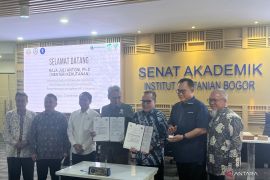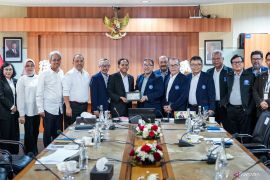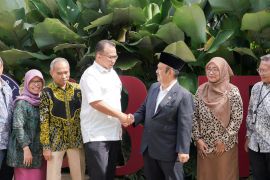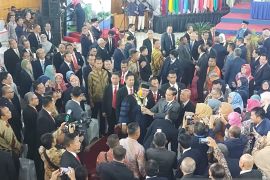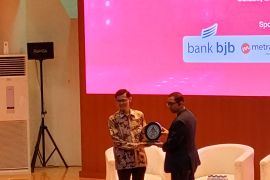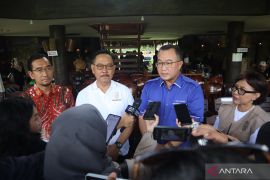"The Zero Hunger program should become our model because the Brazilian government has been successful in reducing the hunger rate," Prof Tahlim Sudaryanto, expert staff of the agriculture minister, said in the opening of a workshop on the national food resilience here Tuesday.
Tahlim said in general, the national food resilience is adequate, the problems concern the data, infrastructure, and information technology.
A comprehensive improvement in all sectors is needed to maintain the food resilience, according to him.
The national workshop themed The Central and Regional Governments` Role in Increasing the Food Resilience in Indonesia: Learning from Global and National Experiences" was organized by the agriculture ministry in cooperation with the World Bank.
The workshop`s speakers included experts from Indonesia, Brazil and China.
Adriana Aranha, Professor Pontifical of the Catholic University of Minas Gerais and former special Adviser to President Lula of Brazil, explained that the Zero Hunger program was launched by President Lula in 2003.
Early June 2011, Brazilian President Dilma Rousseff launched Brazil Without Poverty, a program to help the 16.2 million Brazilians living in destitute conditions receive better access to health care, sanitation, welfare and electricity.
According to the Ministry of Social Development and Fight Against Hunger, the Brazil Without Poverty program will seek out extremely poor families, those with monthly household incomes of 70 reais (US $44) or less, and provide them with basic necessities.
(Uu.F001/HAJM/B003)
Editor: Priyambodo RH
Copyright © ANTARA 2011
